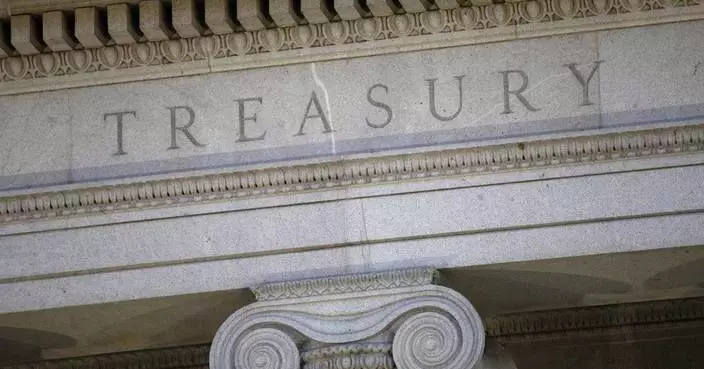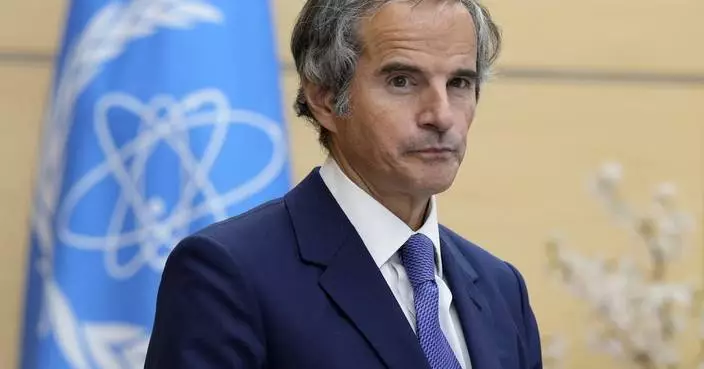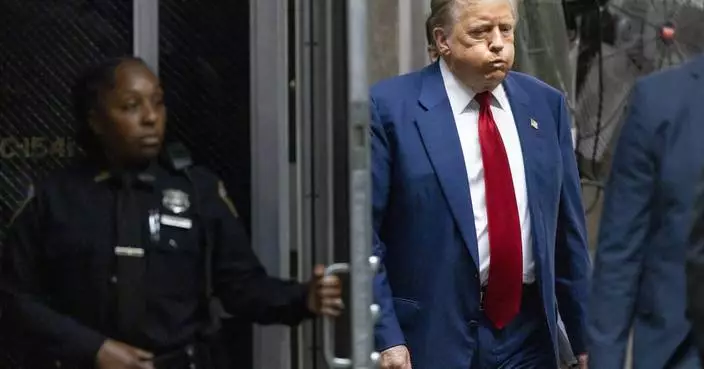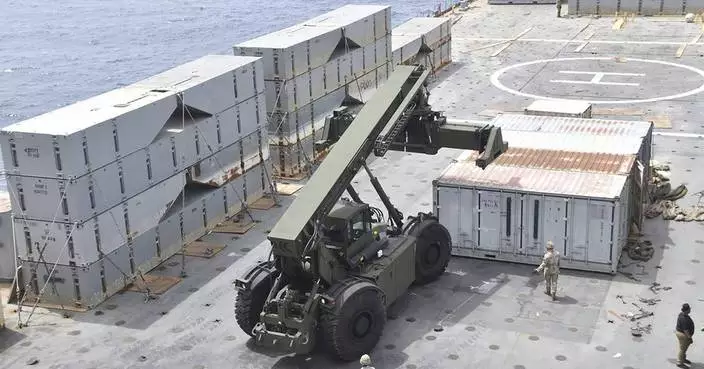The Trump administration's decision to lift a moratorium on coal sales from public lands could hasten the release of more than 5 billion tons of greenhouse gases, but officials concluded Wednesday it would make little difference in overall U.S. climate emissions.
That conclusion from the Bureau of Land Management comes after a judge ruled last month the administration had failed to consider the environmental effects of resuming coal sales from public lands.
Sales were largely halted in 2016 under President Barack Obama over worries about climate change. But the moratorium was rescinded by then-Interior Secretary Ryan Zinke soon after President Donald Trump took office, fulfilling a campaign pledge from the Republican.
Critics said the Trump administration's contention that resuming sales would have negligible effects on the environment was absurd given the scope of the federal coal program.
About forty percent of coal burned in the U.S. comes from federal leases, primarily in Western states including Wyoming, Colorado, Utah, Montana and New Mexico. Companies have mined about 4 billion tons of coal from federal reserves in the past decade, contributing $10 billion to federal and state coffers through royalties and other payments.
In Wednesday's report, the Bureau of Land Management analyzed applications from companies for coal leases totaling more than 2.5 billion tons of the fuel. Just over 5 billion tons of greenhouse gases would be produced by burning the fuel for electricity over the next 20 years, the agency said.
That's equivalent to just over 1 percent of greenhouse gas emissions from the energy sector for 2017, according to the agency.
The agency's conclusion was based on the assumption that coal sales would have resumed as normal once the moratorium ended in 2019.
Environmentalists who sued to reinstate the moratorium said that assumption was flawed. They also blasted officials for providing only a 15-day comment period.
"This seems to be both absurd and tremendously insulting to the public," said attorney Michael Saul with the Center for Biological Diversity, one of several groups that sued to block the moratorium. "Economics plus physics tell us that mining more cheap coal means burning more coal, which means more CO2 in the atmosphere and a hotter planet."
The attorneys general of California, New Mexico, New York and Washington — all Democrats — also had challenged Trump's move to end the moratorium.
A spokeswoman for the National Mining Association, which intervened in the court cases on behalf of the Trump administration, declined to comment on Wednesday's report.
The industry group has said previously that it was the Obama administration that violated federal law, by imposing the moratorium without first analyzing its effects on the coal industry.
In February, Interior Department officials had announced a sale of coal leases on public lands in Utah by issuing a statement headlined "The War on Coal is Over." They said the sale would not have been possible if the administration had not overturned the Obama-era moratorium.
Follow Matthew Brown at https://twitter.com/matthewbrownap
UNITED NATIONS (AP) — Russia has circulated a U.N. resolution calling on all countries to take urgent action to prevent putting weapons in outer space “for all time” a week after it vetoed a U.S.-Japan resolution to stop an arms race in space.
The Russian draft resolution, obtained Wednesday by The Associated Press, goes further than the U.S.-Japan proposal, not only calling for efforts to stop weapons from being deployed in outer space but for preventing “the threat or use of force in outer space,” also “for all time.”
It says this should include deploying weapons “from space against Earth, and from Earth against objects in outer space.”
Russia’s U.N. Ambassador Vassily Nebenzia told the Security Council when he vetoed the U,S.-Japan draft that it didn’t go far enough in banning all types of weapons in space.
The vetoed resolution focused solely on weapons of mass destruction including nuclear arms, and made no mention of other weapons in space.
It would have called on all countries not to develop or deploy nuclear arms or other weapons of mass destruction in space, as banned under a 1967 international treaty that the U.S. and Russia ratified, and to agree to the need to verify compliance.
Before the U.S.-Japan resolution was put to a vote on April 24, Russia and China proposed an amendment that would call on all countries, especially those with space capabilities, “to prevent for all time the placement of weapons in outer space, and the threat of use of force in outer spaces.”
The vote was 7 countries in favor, 7 against, and one abstention and the amendment was defeated because it failed to get the minimum 9 “yes” votes in the 15-member Security Council required for adoption.
U.S. Ambassador Linda Thomas-Greenfield told the council after the vote that Russian President Vladimir Putin has said Moscow has no intention of deploying nuclear weapons in space.
“Today’s veto begs the question: Why? Why, if you are following the rules, would you not support a resolution that reaffirms them? What could you possibly be hiding,” she asked. “It’s baffling. And it’s a shame.”
Putin was responding to White House confirmation in February that Russia has obtained a “troubling” anti-satellite weapon capability, although such a weapon is not operational yet.
Russia’s U.N. Ambassador Vassily Nebenzia said after casting the veto that the U.S.-Japan resolution cherry picked weapons of mass destruction.
He said much of the U.S. and Japan’s actions become clear “if we recall that the U.S. and their allies announced some time ago plans to place weapons … in outer space.”
Nebenzia also accused the U.S. of blocking a Russian-Chinese proposal since 2008 for a treaty against putting weapons in outer space.
Thomas-Greenfield accused Russia of undermining global treaties to prevent the spread of nuclear weapons, irresponsibly invoking “dangerous nuclear rhetoric,” walking away from several of its arms control obligations, and refusing to engage “in substantive discussions around arms control or risk reduction.”
Much of the Russian draft resolution is exactly the same as the U.S.-Japan draft, including the language on preventing an arms race in space.
It calls on all countries, especially those with major space capabilities, “to contribute actively to the objective of the peaceful use of outer space and of the prevention of an arms race in outer space.”
Thomas-Greenfield said the world is just beginning to understand “the catastrophic ramifications of a nuclear explosion in space.”

FILE - U.S. Ambassador to United Nations Linda Thomas-Greenfield speaks on Thursday, April 18, 2024, in Tokyo. The U.N. Security Council is set to vote Wednesday, April 24, 2024, on a resolution announced by Thomas-Greenfield, calling on all nations to prevent a dangerous nuclear arms race in outer space. It is likely to be vetoed by Russia. (AP Photo/Eugene Hoshiko, Pool, File)










